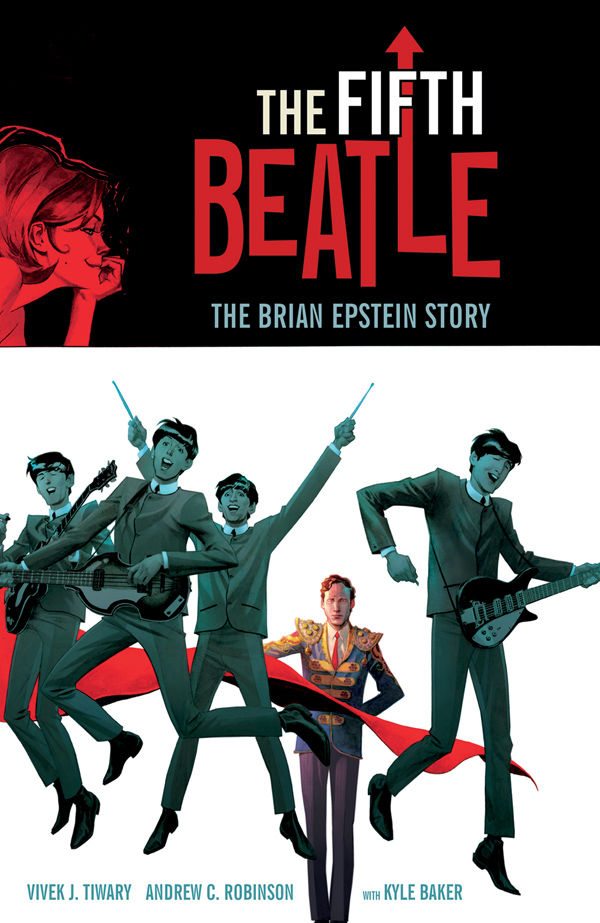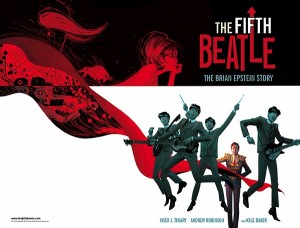BRIAN EPSTEIN’S DREAMS REMEMBERED IN ‘THE FIFTH BEATLE’
Vivek Tiwary chronicles the inspiring professional and personal life of the Fab Four’s manager
Vivek J. Tiwary is a lifelong Beatles fan, but there’s one journey to Liverpool, England, that will be among his most memorable.
Tiwary, a Broadway producer, says the Fab Four’s manager Brian Epstein was first a business inspiration and later a “historical mentor.” So he made the pilgrimage to Epstein’s hometown eight years ago as soon as he decided to chronicle his life in the graphic novel The Fifth Beatle.
“I went to his gravesite and sat down on the grave and I asked his permission,” says Tiwary, who considers the Dark Horse Comics book (out Tuesday) his “labor of love” for the last 20 years.
“This guy, against all odds and pigeonholed as somebody who has no business working in the field (in which) he worked, had a dream. He said, ‘I hear in The Beatles a group that is going to be bigger than Elvis.’ And people thought he was crazy. But he was right.”
Written by Tiwary and illustrated by Andrew C. Robinson and Kyle Baker,The Fifth Beatle begins in 1961 when Epstein is floored by a very young Paul McCartney, John Lennon and George Harrison playing the Cavern Club, and ends in 1967 with Epstein’s death at age 32 of a drug overdose.
As a young business student at The Wharton School 21 years ago, Tiwary wanted to study Epstein as the entertainment visionary who fought for a record deal for The Beatles when no one wanted them, gave them those iconic suits and haircuts, and convinced Ed Sullivan to put them on the air.
Not finding much in the way of research about Epstein the man, Tiwary reached out to those who knew him best, including Sid Bernstein, the promoter who brought the group to America in 1964, and Joanne Peterson, Epstein’s personal assistant who was with the police when they broke down his door and found him dead.
In hearing their reminiscences, Tiwary, 40, fell in love with Epstein’s story of being a misfit in his chosen field.
“He was gay and Jewish and from Liverpool, and in the 1960s that was three incredible obstacles,” Tiwary says. “It was against the law to be gay, there was a lot of anti-Semitism and to say that Liverpool was a town that had no cultural influence would quite frankly be an understatement. As someone of Indian origin, I also feel like a little bit of an outsider and I could relate to that status of feeling like you don’t belong.”
Read the article in its entirety at USAToday.com.


